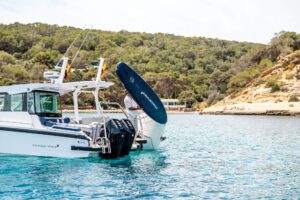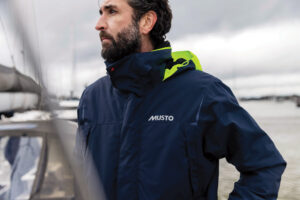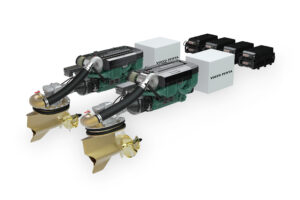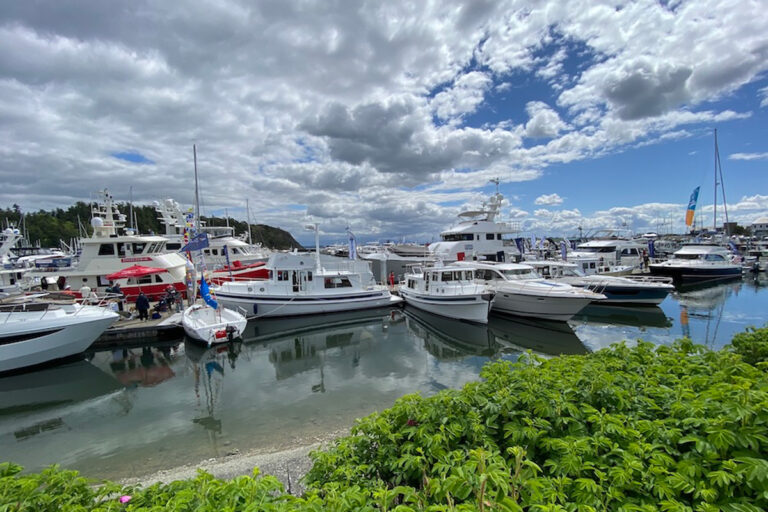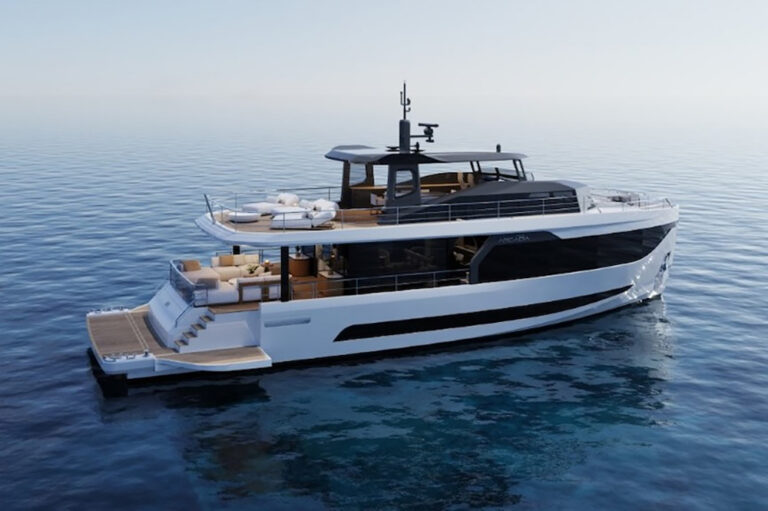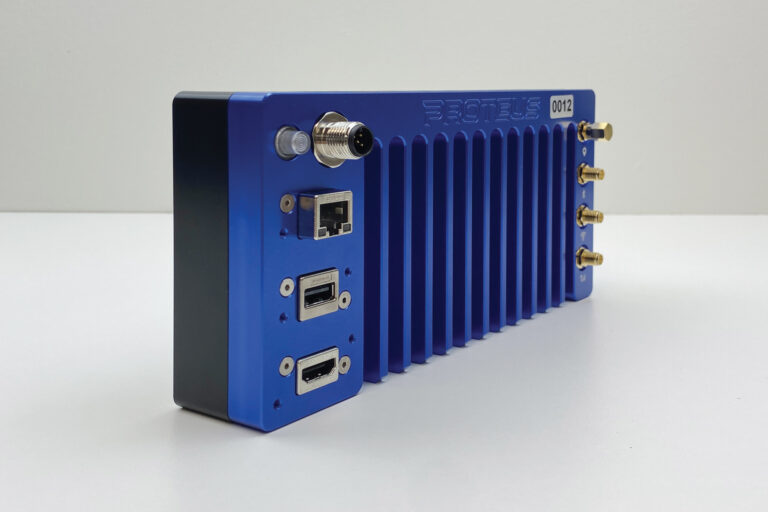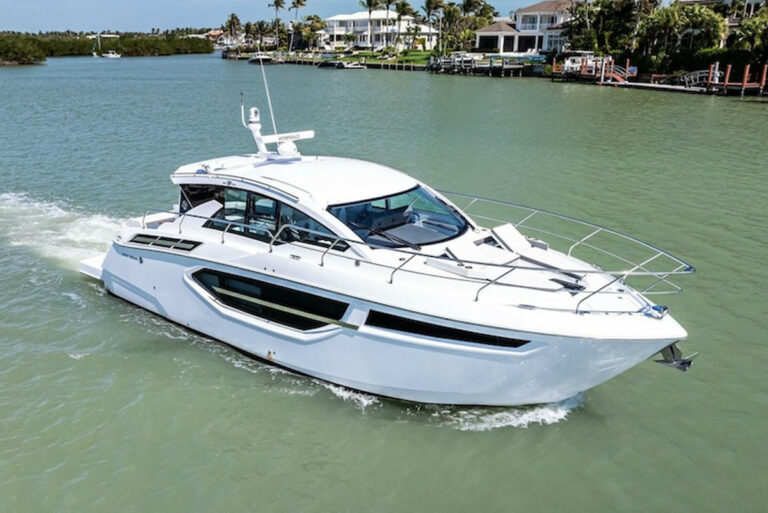
Yachting is an amazingly safe activity, and statistically speaking, you’re far more likely to get injured in your home or car than you are on your boat. Add to that the stress relief and relaxation that goes hand in hand with being afloat, and it’s easy to see how enjoying the yachting lifestyle can help you live a longer, happier life.
But this hasn’t become the case by chance. The inherent dangers of leaving land behind have always been cause for paying strict attention to safety measures, and everything from US Coast Guard regulations to boater-safety courses to modern technology has contributed to making our time on the water far safer than it once was.
And yet, of all the dangers that might occur, fire is one of the scariest.
Truth be told, boat fires resulting in injury or fatalities are extremely rare. According to the latest Coast Guard statistics, only four deaths and 49 injuries were caused by fires in 2018. However, the high amount of property damage resulting from the related accidents (more than $13 million, making fire second only to collisions in cost) also provides some insight into why fires aboard are so frightening. They tend to be incredibly destructive.
All of which begs the question: Just how prepared are you and your yacht in case of fire?

Fire by Wire
Setting aside boat fires caused by outside sources (more than a quarter of boat fires result from a blaze at a marina or storage facility, as opposed to an issue with the vessel itself), BoatU.S. marine insurance files show that 52 percent of all fires resulting in a claim are caused by some form of electrical issue. Most of these problems occur in the engine room, where heat, high-amperage loads, flammable fuel or lubrication leaks can contribute to a problem.
Thus, one of the best ways to prevent a fire is by doing regular maintenance inspections of your boat’s electrical system. Check out connections, and make sure they’re clean and tight. Look for loose or sagging wires and wire harnesses that may be susceptible to chafing. Search for signs of wear in wires and your shore-power cord (another notable source of electrical fires).
At the same time, keep the engine room clean and free of flammable-liquid spills, and inspect fuel lines and connections for leaks that can quickly turn a flare-up into a full-blown disaster.

Beat the Heat
Another substantial contributor to fires aboard is also located in the engine room: the powerplants. In most cases, the root cause is cooling- or exhaust-system problems overheating the engines. But there’s usually a secondary contributor as well—a rag or wire touching an exhaust elbow, for example, and then bursting into flame or melting when the system overheats. Again, regular maintenance is the best prevention because as long as your yacht’s cooling and exhaust systems are operating properly, the chances of them causing a fire are exceedingly low.
The remaining causes of fires aboard are diverse and account for a very low percentage of accidents. “Alcohol stoves used to be a big problem, but we see fewer and fewer these days,” says BoatU.S. Foundation president Chris Edmonston. “Today, people cook outdoors or with a microwave much more often.”
Edmonston credits National Marine Manufacturers Association certification standards and generally improved quality in boats and yachts across the board with reducing fire dangers in general. Still, fires can start in countless ways. Treat the galley just as you would your kitchen, he says, and the staterooms just as you would your bedroom.
There is, however, one big difference between home fires and boat fires: the presence of smoke detectors.
“Early detection is critical when looking at a boat from a fire-safety standpoint, and it’s often lacking on boats,” says John McDevitt, a former deputy fire chief who holds a US Coast Guard 100-ton license and chairs the National Fire Protection Association 302 standard for watercraft.
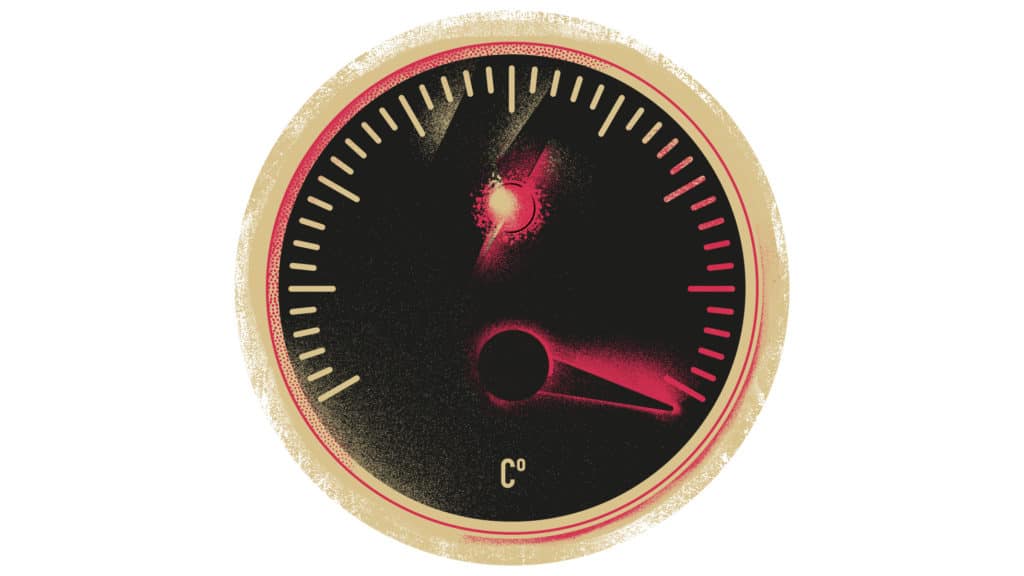
“Some people knock the use of smoke detectors because they aren’t necessarily marine equipment, but smoke detectors should be in each accommodation space, the engine room and at the helm,” he says, adding that he has wirelessly connected radio-frequency smoke alarms on his own boat. When one goes off, they all do, so no matter where he might be on the boat, he’s alerted.
Along with ensuring early detection, McDevitt says that everyone should evaluate all areas of the boat for easy and safe egress, and take a “fire inventory” to catalog first-response resources on a regular basis. Just having the required extinguishers aboard doesn’t necessarily mean you’re prepared.
“Nonrechargeable extinguishers are of no value after 12 years,” he says. “Check the date stamped on the bottom of the extinguisher or on the label, and when they’re out of date, even if they still show green on the gauge, they should be replaced.”
The presence of a fixed extinguisher in the engine room also is not foolproof. McDevitt cautions that they’re not always mounted as high as possible, which is where they belong. Being located near natural or mechanical vents can also impact their firefighting effectiveness.
There are myriad reasons why a fire can start on a yacht, but the bottom line often comes down to common sense. Savvy fire safety aboard is no different from on land, and it all boils down to three things: prevention, early detection and being prepared to extinguish any fire quickly. Cover these bases, and your yacht will remain one of your safest—and favorite—places on the planet.

Life Lesson
A fishing boat catches fire off Alabama’s Dauphin Island, serving as a reminder for all boaters to be prepared.
By Kevin Koenig
Boatswain’s Mate 2nd Class William Tadlock and his crew were watching a movie at Station Dauphin Island around 8 p.m. on January 15 when a distress call came in. A snapper-fishing boat had radioed for help from the island’s Confederate Strait. The vessel was on fire.
By chance, Tadlock’s four-man crew’s 29-foot response boat was out of the water that evening for maintenance and sitting on a trailer. The men rushed the boat to a landing and backed her into the water just as more information crackled over the VHF radio: The three men aboard the fishing boat were abandoning ship.
Tadlock, the response boat’s coxswain, revved the twin 225 hp Honda outboards. The vessel ripped off through the dark, glass-calm water at speeds upward of 40 knots.
As they covered the lone mile between the landing and the blaze, Tadlock went over his priorities in his head. “Obviously, the situation was very urgent, and we wanted to get an asset on scene as fast as possible,” he says. “And we wanted to help the people the best we can first, and then salvage their boat if we can, and third, prevent damage to other boats and property in the area.”
Tadlock and his crew found the fishing boat in a “fully involved” fire, meaning internal access was impossible because of heat, flames and smoke. Thankfully, they saw a life raft floating nearby with the three men in it.
“We made our approach to the raft and found that the three guys were all OK,” Tadlock says. “We got them on board our boat and got farther away from the fire so that we could assess any injuries. Then we took them to a pier nearby where they were cleared for medical attention. Then we went back to the fire.”
With the boat still engulfed in flames, Tadlock became concerned about a nearby pier. He and his crew rigged their P6 dewatering pump for firefighting and blasted the fire with a thick stream of salt water. In about an hour, the blaze was out. As of this writing, investigators were still determining the cause.
Tadlock says it’s important that the crew of the fishing boat was prepared. The lesson for recreational boaters is to know what to do in an emergency.
“You need to do routine maintenance on your vessel,” he says, “and have the right safety gear, obviously—life jackets, a throwable flotation device, emergency signaling like flares and fire extinguishers. This boat had all the proper equipment. The water was 54 degrees that night. Them having that life raft and quickly coming up with a plan to abandon ship? That absolutely saved their lives.”
In fact, in the moments after Tadlock’s crew hauled the fishermen on board, he told them: “We’re awfully sorry about your boat, but we’re also awfully happy you had the right safety gear. Because property can be replaced, but lives cannot.”

